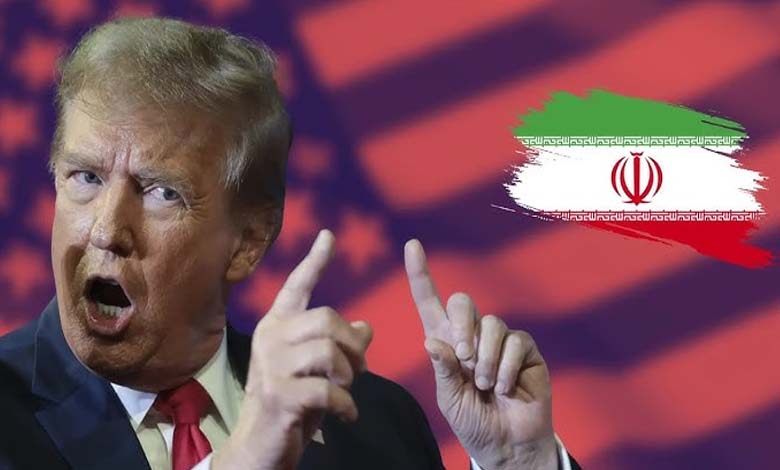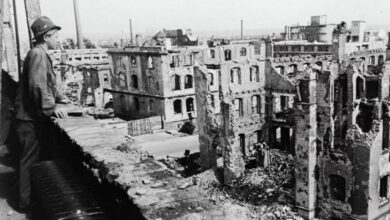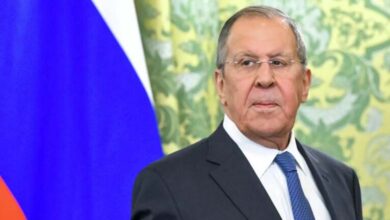Iran Keeps Door Open for Dialogue with Trump and Prepares for New Sanctions
Abbas Araghtchi seeks to appease Trump by stating that communication channels between Iran and the US have always been open despite fundamental disagreements, highlighting Iran's cooperation with the International Atomic Energy Agency (IAEA) on the nuclear issue.

Iranian Oil Minister Bijan Zanganeh said on Wednesday that Tehran had developed plans to maintain oil production and exports and was prepared for potential US restrictions on oil following Donald Trump‘s return to the White House. Foreign Minister Abbas Araghtchi confirmed the existence of communication channels between the two countries despite political differences, mentioning Iran’s cooperation with the IAEA on the nuclear issue.
-
Iran Does Not Rule Out Communication with Trump to Preserve Its Interests
-
U.S. Climate Envoy: Trump’s Victory is “Disappointing”
Zanganeh clarified that the government is prepared for all scenarios, including tighter restrictions on the oil sector by Washington, according to the Iranian Oil Ministry’s website (Shana), amid concerns from the reformist government about the impact of US pressures on the Iranian economy, which it had promised to improve.
Trump, who adopted a strategy of tightening sanctions against Tehran over its nuclear program during his first term, implemented a plan to “zero” oil production, which had major negative repercussions on the Iranian economy.
During his first term, the Republican leader followed a “maximum pressure” policy towards the Islamic Republic, notably withdrawing unilaterally in 2018 from the 2015 international nuclear deal with Iran.
-
Iran Denies Involvement in Trump Assassination Attempt after U.S. Accusations
-
Wall Street Journal: Trump to Renew “Maximum Pressure” Campaign against Iran
Iran’s foreign minister, meanwhile, sought to appease Trump by stating that communication channels between Iran and the US have always been open despite fundamental disagreements, and mentioning the visit of IAEA Director General Rafael Grossi.
He confirmed that “thanks to Grossi’s positive stance, conditions are ripe to develop cooperation,” adding, “With this positive spirit, a new path for cooperation between Iran and the agency will be charted.”
Abbas Araghtchi attempted to preempt Trump’s electoral promises on the Iranian nuclear issue, stating, “Cooperation with the agency, as a principle of state diplomacy, can help manage international challenges and strengthen nuclear security.”
-
Trump’s Rise Prompts Iran to Consider the Consequences of a Potential Attack on Israel
-
Will Trump Recognize North Korea as a “Nuclear Power”?
He also mentioned the possibility of reducing differences with Washington, stating that “the differences between the two countries are very deep and fundamental, and they will not be resolved in the short or medium term.”
He called for managing these differences without tension, saying, “We must act in a way that reduces costs and tensions.”
The IAEA director-general arrived in Iran on Wednesday for crucial talks after warning that “margins of maneuver are shrinking” regarding Tehran’s nuclear program.
-
Gaza, Lebanon, Iran… What Will Trump Do?
-
The Potential Return of Trump to Power: A Nightmare for Iran
He is visiting the Islamic Republic amid rising tensions between Iran and Israel, following Israeli Defense Minister Yoav Gallant’s warning that Tehran is “more vulnerable than ever to strikes on its nuclear facilities.”
Israel has accused Iran for years of seeking nuclear weapons, a charge the Islamic Republic denies, accusing the Israeli state of being behind the assassination of scientists and sabotage of nuclear sites.
The two arch-enemies have exchanged unprecedented direct strikes in recent months in the history of their conflict, following Israel’s war against two Tehran-aligned groups, Hamas in Gaza and Hezbollah in Lebanon.
-
Iran’s Nuclear Program: What is the “Wisest” Path for the U.S. to Face It?
-
How is Iran preparing to respond to Israel? An American newspaper reveals the details
This has raised concerns about a direct engagement between Iran and Israel after years of covert operations and indirect strikes across the Middle East.
Grossi said on Tuesday, on the sidelines of the COP29 climate conference in Baku, that Iranian authorities “must understand that the international situation is becoming more tense and that the margins of maneuver are shrinking,” emphasizing that “finding diplomatic solutions is crucial.”
He noted that Iran allows the IAEA to conduct inspections but “we need more. Given the size, depth, and ambition of Iran’s program, we need to find ways to give the agency a clearer view.”
-
Iran explicitly warns the U.S. of the consequences of supporting an Israeli attack on it
-
Iranian MiG-29s: Can they fend off the impending Israeli attack?
In a Tuesday interview with CNN, Grossi stated that Iranians “have large quantities of nuclear materials that can be used to make nuclear weapons,” adding, “They do not have nuclear weapons at this stage.”
Trump stated last week that he does not seek to harm Iran and wants its people to have “a very successful country,” but insisted on preventing the Islamic Republic from acquiring nuclear weapons.
The nuclear deal between Tehran and six major powers was concluded in 2015 under President Barack Obama and lifted sanctions on Iran in exchange for limiting its nuclear activities and ensuring their peaceful nature.
-
Iran activates ‘Red Alert’… What does it mean?
-
Trump receives intelligence report on “Iranian threats” to assassinate him
However, Trump reimposed severe economic sanctions after withdrawing from the agreement in 2018. In response, Tehran began gradually stepping back from most of its commitments under the agreement and took a series of steps that allowed for significant growth and expansion of its nuclear program.
One of the most notable steps was raising the level of uranium enrichment from 3.67%, the cap set by the nuclear agreement, to 60%, a level close to the 90% needed to develop a nuclear weapon.
Rafael Grossi will visit the Islamic Republic on Wednesday for the first time since May. The International Atomic Energy Agency (IAEA) confirmed in a statement that the visit aims to hold “high-level meetings with the Iranian government” and engage in “technical discussions covering all aspects.”
-
Can Hezbollah stand up to Israel? Iranian President expresses doubts
-
Pager Explosions Lead Iran’s Revolutionary Guards to Ban the Use of Communication Devices
Since Democratic President Joe Biden took office in January 2021, succeeding Trump, Tehran and Washington have held indirect talks, mediated by the parties to the nuclear agreement, in an effort to revive it. However, all attempts have failed.
After the election of reformist President Masoud Bezhkishan last August, Tehran indicated that it would be open to talks to revive the agreement.
The IAEA has repeatedly urged Iran to cooperate, a call that was reiterated by the Director-General of the IAEA during his recent visit, where he called for “concrete” actions in this area.
In recent years, Iran has reduced its cooperation with the IAEA, removed some surveillance cameras from its facilities, and withdrawn the accreditation of several agency inspectors.
The roots of Iran’s nuclear program date back to the 1950s when Washington signed a cooperation agreement with Tehran during the reign of Shah Mohammad Reza Pahlavi. In the 1970s, Iran ratified the Nuclear Non-Proliferation Treaty.
-
Iran’s “Recruitment” of an Israeli Businessman to “Assassinate Netanyahu”: The Full Story
-
Iranian Proxies Focus on Targeting U.S. Bases in Syria
With the escalation of regional tensions, some voices in Tehran have openly raised the possibility of reconsidering its nuclear doctrine. Members of Parliament have urged the Supreme Leader, Ayatollah Ali Khamenei, who holds the final say in the country’s foreign policy, to reconsider his fatwa on nuclear weapons.
In his fatwa, first published in 2010, Khamenei declares the use of weapons of mass destruction “forbidden,” and affirms that it is a duty to protect humanity from this great affliction.
Iranian officials often consider this fatwa as a guarantee of the peaceful nature of their nuclear program.
-
Washington Post reveals how Lebanese pay the price for Iranian threats and ongoing Hezbollah-Israel clashes
-
Using AI, Iranian Accounts Closed for Attempting to Target U.S. Elections












